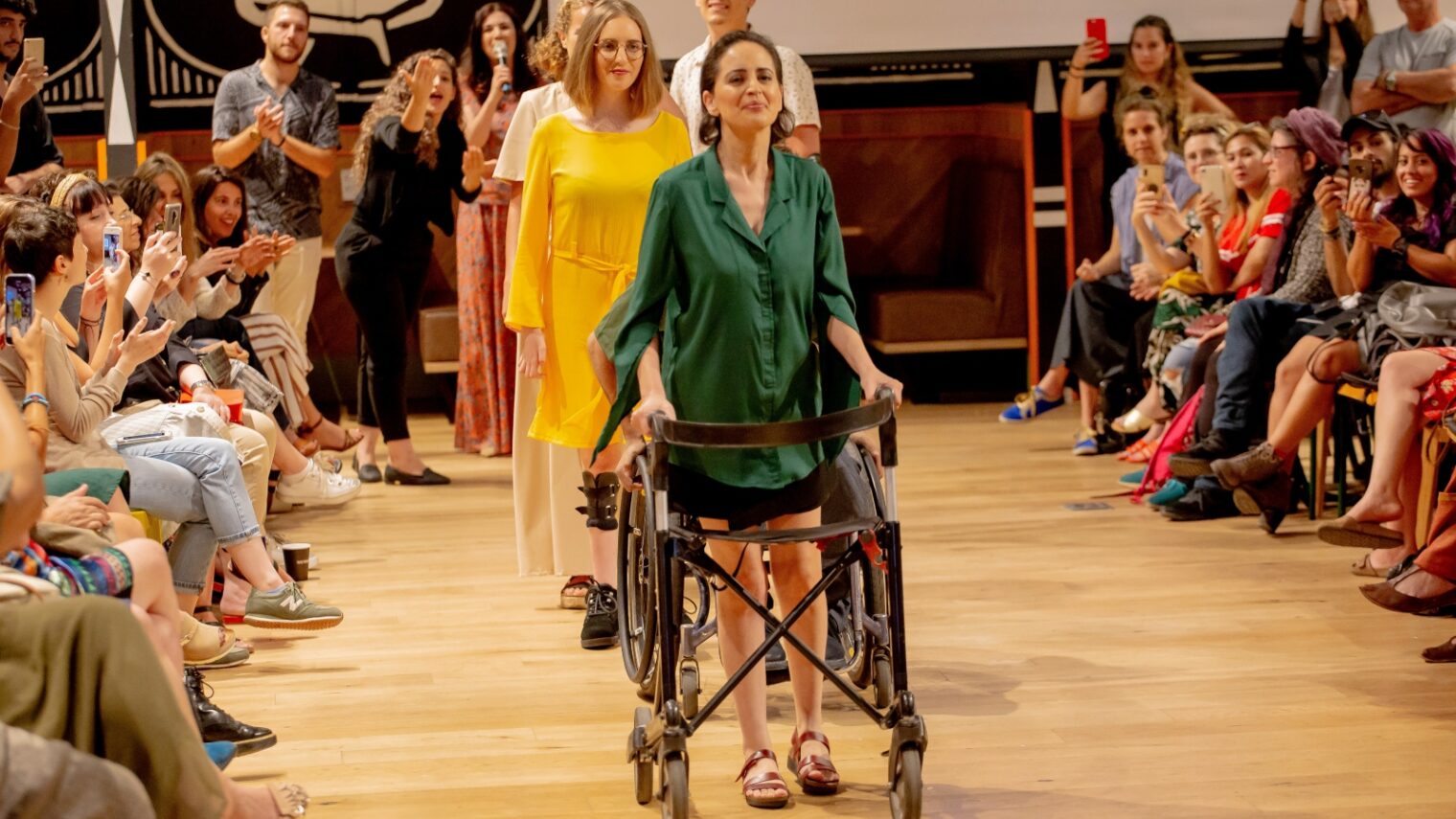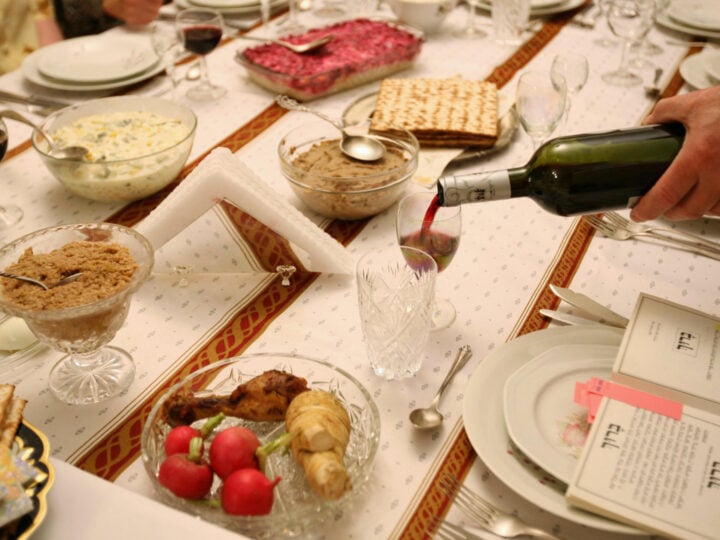Nothing was quite the same for Shay Senior after he injured his right arm during his military service.
One of those things stared him in the face when he opened his closet following three years of treatment and rehab: He realized could no longer wear half the clothing in his wardrobe.
“I started searching online and I found either healthcare products that a fashionable person would never wear, or fashionable brands that offer adaptive products with super-high prices,” Senior tells ISRAEL21c.
“So, I created a questionnaire in four languages and spread it through social media. More than 1,000 people [with disabilities] responded with information about their daily needs. The problem was obvious, and it wasn’t just mine.”
Indeed, Senior is one of several Israeli designers making fashion accessible to people with disabilities.
He founded Palta Clothes in 2018 with Netanel Yehuda Halevi, a social activist, motivational speaker and PR specialist — and lifelong wheelchair user due to muscular dystrophy.
“Palta” is an acronym for the Hebrew phrase “act for the other.”
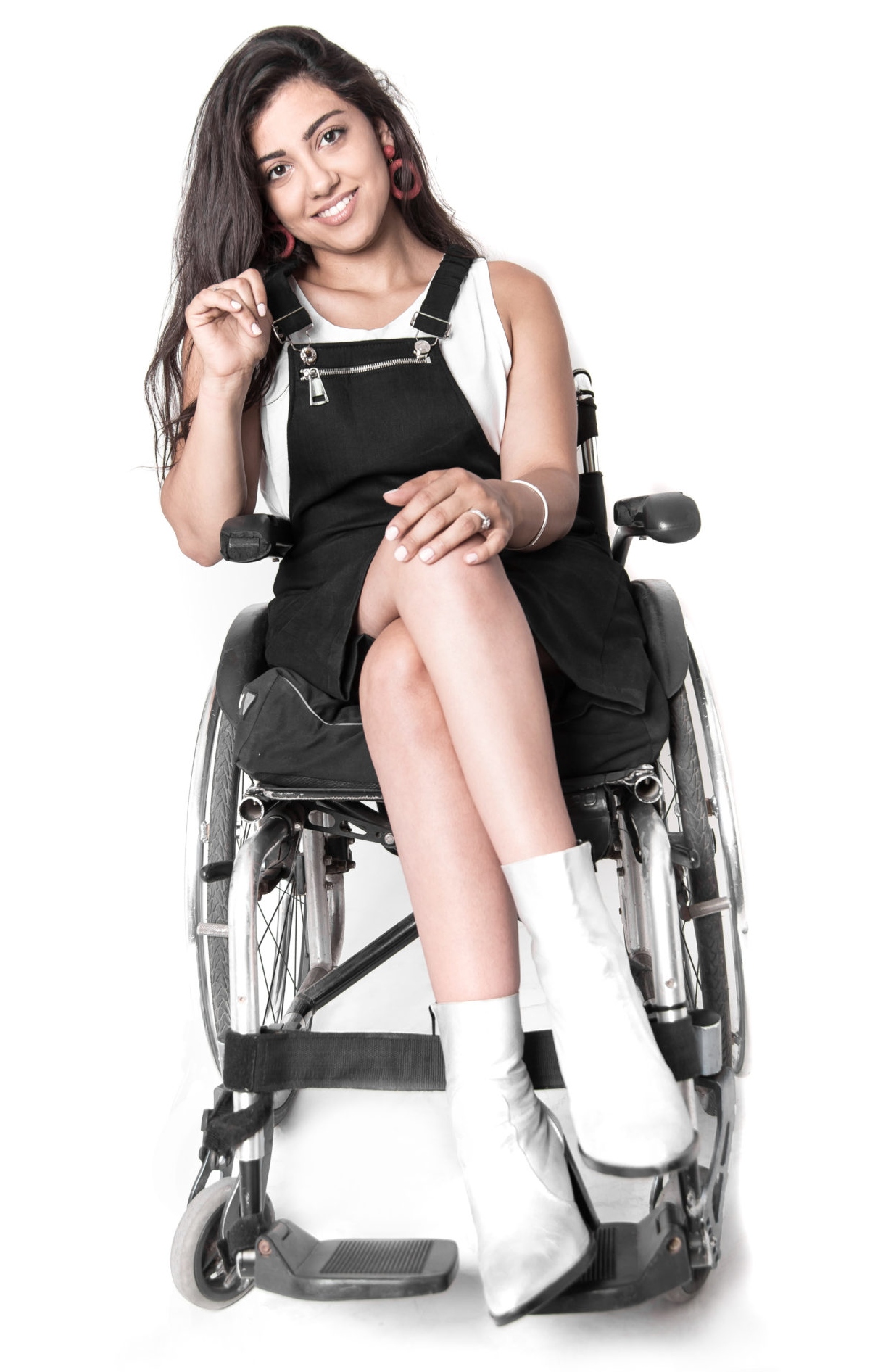
They ran focus groups to better understand how to make styles practical for people living with wheelchairs, amputation and vision impairment, yet appealing to people without disabilities.
“Every product our company designs is based on the person with the maximum amount of limitations. From there, we build the garment to be practical also for people without disabilities. That’s inclusivity!” exclaims Senior.
“For example, my issue was buttons,” he says. “We created a solution similar to LEGO. You can press the shirt closed with an arm or a wrist.
“Twenty percent of society lives with a sort of disability, but we are sure the 80% will also enjoy these clothes. Who doesn’t want to take off a button shirt in 2 seconds instead of 15?”
Palta has 12 styles available, all made in Israel using environmentally friendly processes and mostly organic cotton. Its first funding round is aimed at financing “a wider range of solutions and deeper technology reaching a wider group of individuals,” says Senior.
Online customers are mostly in Israel and the United States; Palta has had orders from Argentina and Spain as well. Palta also has created a collection for Israeli Paralympians to wear at the opening ceremony in Tokyo this summer.
The bootstrapped company is based in the Library coworking space sponsored by the Tel Aviv-Yafo municipality for social-impact startups. The team is helping teens in a Tel Aviv school for students with disabilities to create fashion portfolios toward future careers.
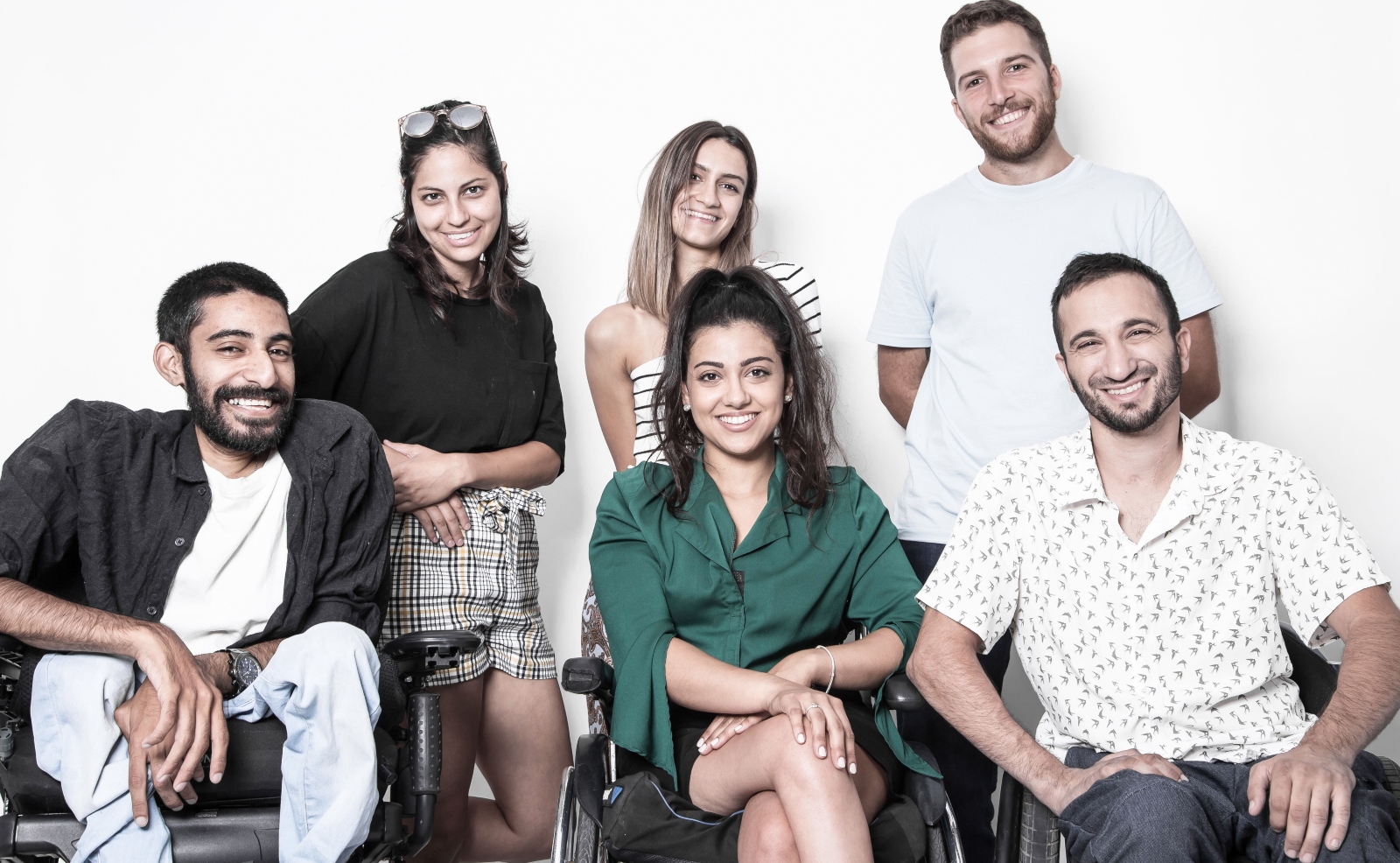
Palta employs a deaf designer, Michal Gorelick. A blind developer, Adi Kushnir, helped make the website.
Senior says Palta garments come with a tag that a blind person can scan with a smartphone to hear what the item is, its size and color, and care instructions.
“We developed this technology in house and could add it to any item of clothing for 240 million blind people in the world to be totally independent with their wardrobe,” says Senior.
Mikita
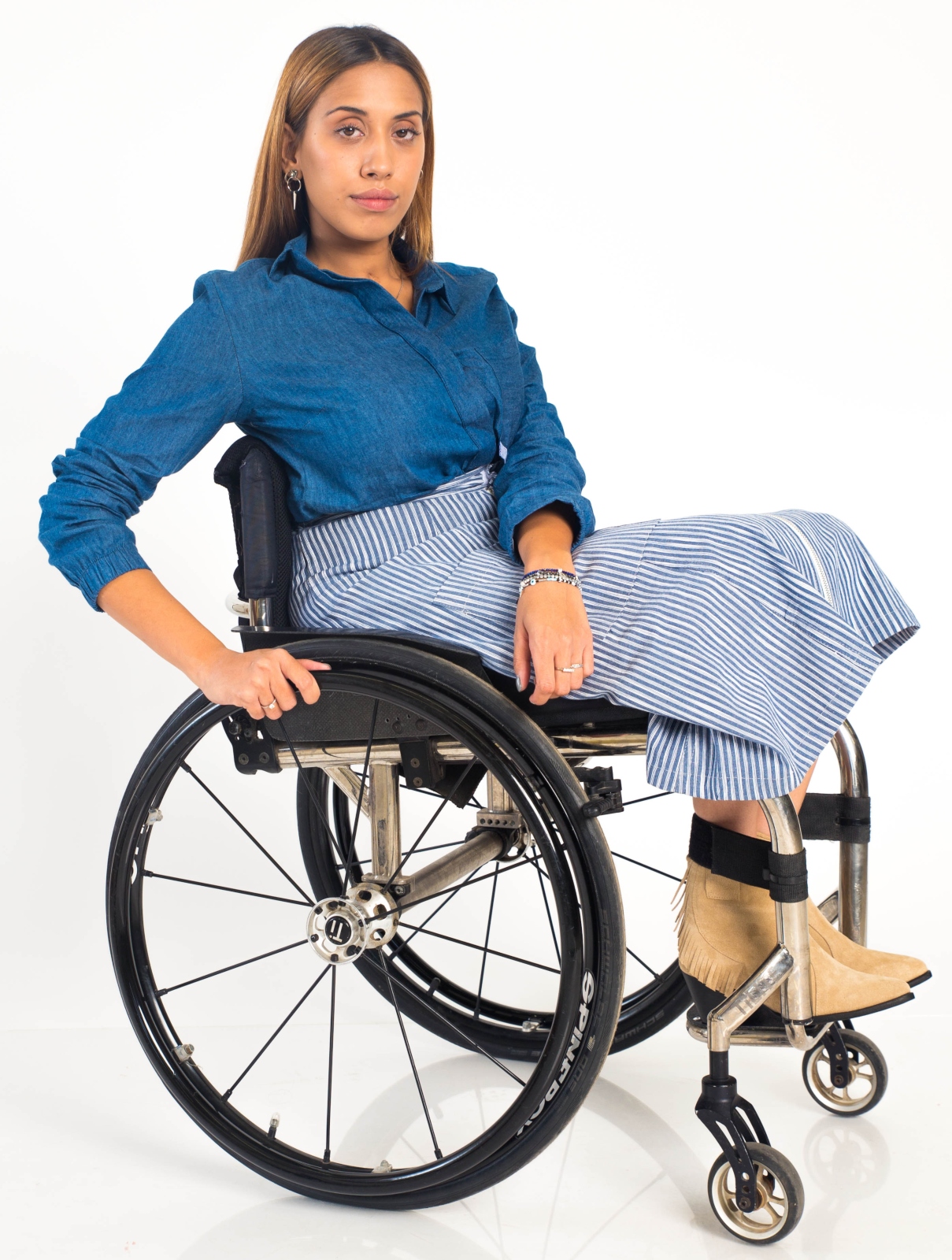
Einav Besser comes to the accessible fashion field after 10 years in high-tech, most recently as a business analyst.
“Six years ago, I decided to become independent and do something that has value and can improve people’s lives,” she tells ISRAEL21c.
She’s always had a passion for fashion. And she understands the clothing difficulties faced by people with disabilities. When she was a teenager, her family fostered an abandoned baby with a severe brain injury.
Besser combined those interests in a fashion brand, Mikita. The word is Belarussian for “winner.”
“I did a lot of research with a fashion designer and talked to a lot of people with disabilities to find out their specific needs,” she says.
“Sometimes I design knowing who this piece will serve and then realize it can serve more than I thought,” says Besser.
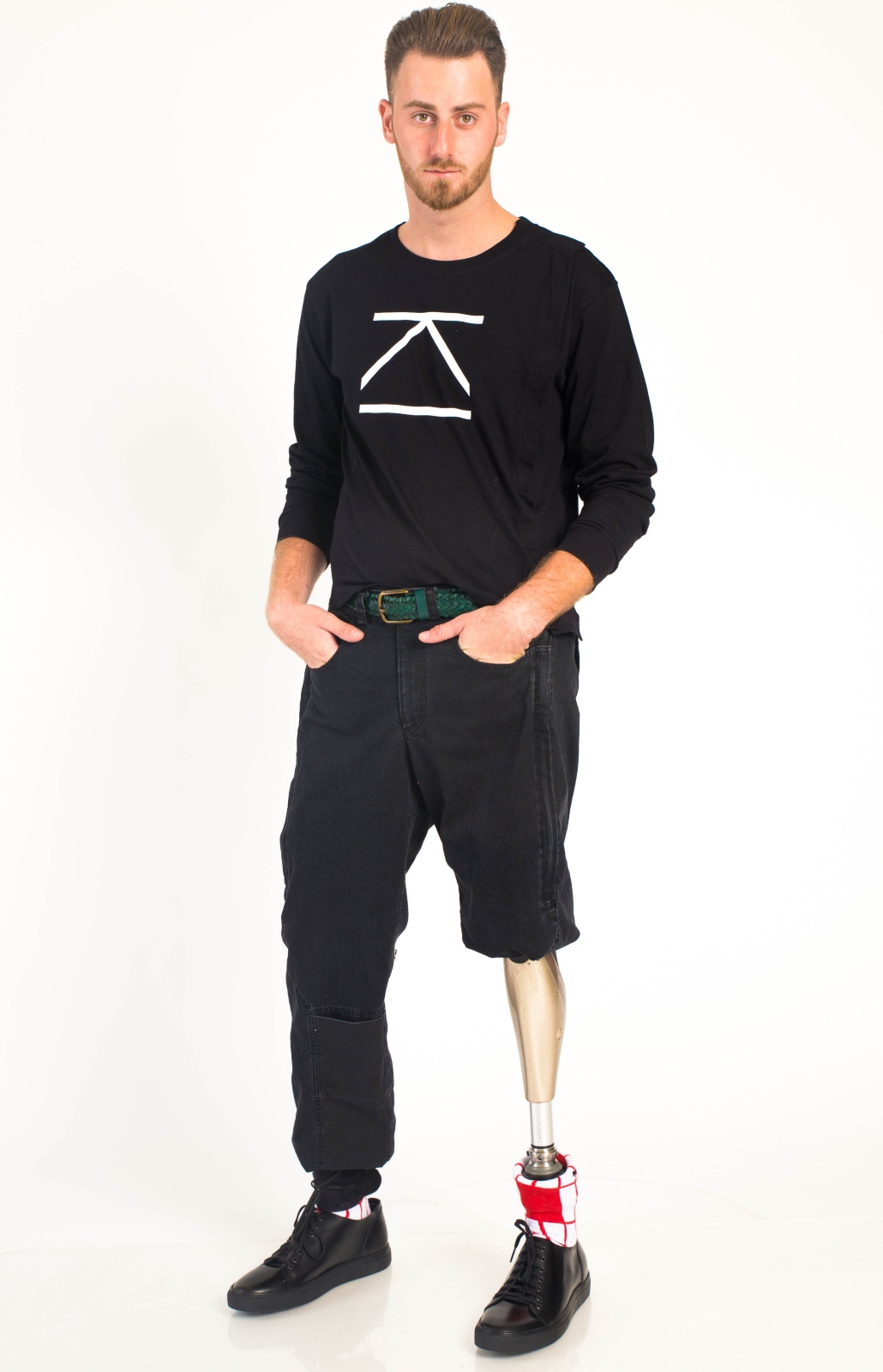
“One of my models, Henry, is missing his left leg. He wanted to have his prosthesis showing and the other leg covered. So, I made track pants with a zipper at the knee level on both sides so any amputee can remove either side.”
For button-up shirts, she replaced the buttons with magnets. “They can serve amputees, people with Parkinson’s, even a nursing mother,” says Besser. “I call it inclusive fashion.”
The Mikita ecommerce site went live last year and offers more than 20 designs for men and women for all seasons. The word is spread, among other ways, through nonprofit organizations for people with disabilities.
All Mikita clothing is made in Tel Aviv. “Even though it’s more expensive, I want to support the Israeli textile industry,” says Besser.
Miricle
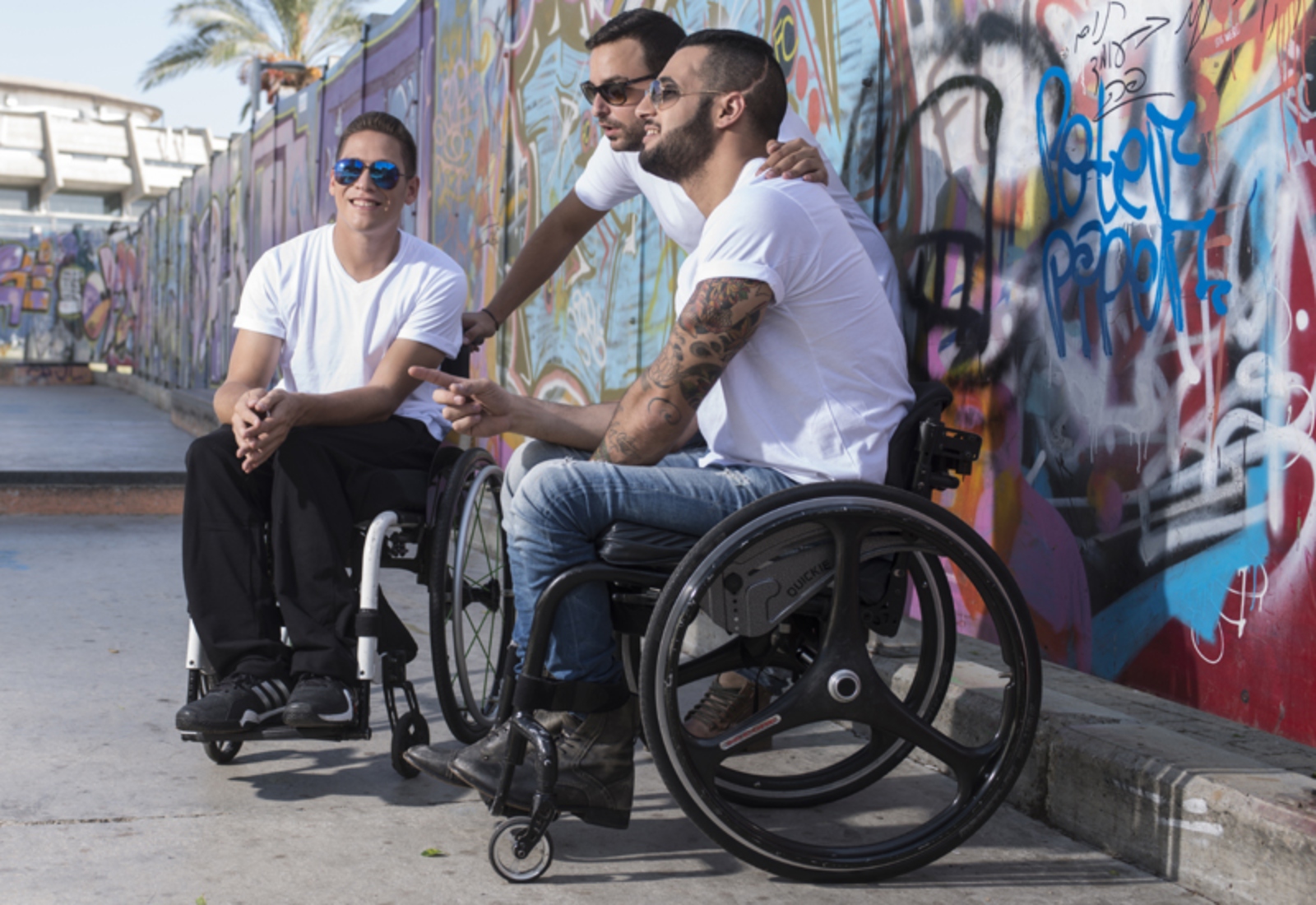
Miri Albik worked in the textile industry for 30 years. Looking for a meaningful change, in 2015 she founded Miricle — an online fashion house for people with disabilities.
“With a burst of enthusiasm, I began to examine the existing solutions for men, women and children with disabilities and special needs,” she says.
“The comprehension that clothes are a way of self-expression and personality has driven me to find better solutions by producing clothes for the community. The right clothes can make a tremendous change, not only in the way a person looks, but even more important, in the way he or she feels.”
Through creative design, unique cutouts combined with modest solutions and the use of natural and breathable raw materials, Miricle offers items “that give people with disabilities a fashion experience tailored to their needs without compromise.”
Albik’s goal is to streamline the daily task of getting dressed, encouraging independence and saving valuable time in the morning. “The result will make you happy and give you a sense of satisfaction and pride in yourself,” she says.
Abba’le Arba

Gil Joshua Dreyfus wears many hats as an entrepreneur, accessibility consultant, motivational speaker and haute couture fashion designer trained at the Sorbonne in Paris.
Above all that, he is the single father of two sets of twins born in 2015. Two of the children, Emma and Ivri, have cerebral palsy.
So, following an impressive career making custom designs for actresses and artists to wear at splashy cultural and fashion events, Dreyfusis working toward commercializing his Abba’le Arba (Father of Four) line of accessible children’s wear.
The collection he hopes to launch this year is meant to meet the diverse needs and lifestyles of all types of children, he says.
“Whether there is a clinical diagnosis or not, every child is special. The goal of Abba’le Arba is to transform the daily experience of getting dressed into a more practical experience while maintaining its aesthetic design,” says Dreyfus.




